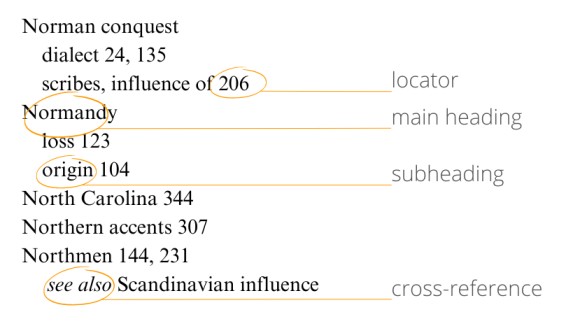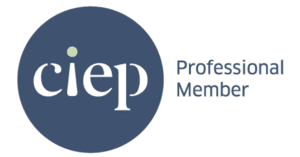Indexes to non-fiction books are like roadmaps that provide straightforward access to the information the reader seeks and to its related terms. Without an index, the knowledge enclosed on the pages of a book may become overlooked. To this end, a good index may enhance the book’s value, offering access to the information contained in the book, also to readers who are not familiar with the book.
If you are wondering if you should engage indexing services, there are two important reasons:
- providing the reader with straightforward access to the information enclosed in the book, which without an index may be overlooked
- meeting the submission guidelines of some publishers who require the manuscripts to be submitted with an index.
These two reasons justify why a broad range of authors — academics and self-publishers of non-fiction — should seek professional indexing services. So, read on as this post will discuss:
- What is an index?
- What are the benefits of having your manuscript indexed?
- What are the benefits of engaging indexing services?
- And what are the concerns and misconceptions surrounding indexes and indexing services?
What is an index?
An index contains terms arranged in an alphabetical sequence of entries. An entry usually consists of a heading with at least one locator and sometimes a see also cross-references to one or more related terms. An entry may also contain a man heading followed by subheadings with locators and cross-references.

But there is another meaning of the word, defined by the Dictionary as “that which serves to direct or point to a particular fact or conclusion; a guiding principle.” Albeit more abstract, I like this definition more because an index points the reader to the information they seek in the text. And so, having discussed what indexes are, let us look at why you should add an index to your manuscript.
What are the benefits of having your manuscript indexed?
A well-crafted index is an easy-to-navigate, helpful tool for readers, leading them to the information they need to retrieve from a book in the shortest, quickest route. Not every book needs an index, but those with a user-friendly index allow the reader to find references to major and minor topics within the text and bring together scattered references to different aspects of the same subject and link related terms and synonyms. Without an index, the reader would have to sieve throughout the entire book in search of the needed information or guess where it might be located.
In sum, a user-friendly index:
- ensures that as much information as possible is easily retrievable by the reader regardless of their varying levels of knowledge and familiarity with the text,
- permits access to information via a variety of entry routes,
- is consistent in language, detail, style and layout,
- reflects an easily recognisable organisation pattern.
Furthermore, many academic and traditional publishers require manuscripts to be submitted with an index, often created by professional indexing services. Usually, publishing with traditional and academic publishers, the authors are responsible for the index. This means they have to pay for it. This is because an index is considered part of the book’s content, thus making it the author’s responsibility.
For instance, Bloomsbury Publishing recognise that authors, as the subject matter experts, could create indexes for their manuscripts. However, they add that “you may prefer to assign the task to a professional, depending on your level of experience and/or the time available to you. It is also worth bearing in mind that a professional will bring an objectivity to the content and subject matter. It is also worth remembering that a professional will bring an objectivity to the content and subject matter.” Harvard University Press state, “hiring a professional indexer is a reasonable approach for busy authors.”
In this light, having your manuscript indexed may increase the value of your book but also your chances for the manuscript to be accepted for publication. Also, it may improve the speed of the publication process.
What are the benefits of engaging professional indexing services?
An index created by a professional indexer will add value to the manuscript, allowing readers to successfully navigate the text, both in print and digital versions. Specifically, indexing services will:
- provide alternative access to terms for users (by providing see cross-references or creating a double entry to synonymous terms),
- recognise relationships with other topics (by providing appropriate see also cross-references to inform the user of these related terms),
- identify implied concepts that are referred to in the text but not named directly,
- distinguish between homographs (words that look the same but have different meanings), e.g. China (country)/china (pottery),
- distinguish between important information and minor or irrelevant references (known as passing references),
- acknowledge references to variant word forms (e.g. plural forms or alternative spellings),
- point the reader to the information contained in images or other visuals.
Furthermore, indexers, as they anticipate the needs of readers, will create an index after considering the readers’ varying characteristics and skills, including:
- education, age and occupation,
- familiarity with document use,
- knowledge of the subject,
- language competence,
- literacy and digital literacy level,
- vocabulary range.
What are the concerns and misconceptions surrounding indexes and indexing services?
Cost
One of the primary concerns revolves around the perceived cost implications of including an index in a manuscript. However, it is important to recognise that indexing services can be cost-effective in the long run. A well-structured and comprehensive index adds value to a book, making it more appealing to readers, increasing its marketability, and potentially leading to higher sales.
For instance, the Society of Indexers recommends indexing rates of £31.60 per hour, £3.55 per page or £9.55 per thousand words for an index to a straightforward, non-academic text. For instance, an index to such a book of 50,000 words would cost £477.50. This is only a rough estimation because several factors may affect an index’s time to completion and price. The complexity of the text (requiring the indexer to have an in-depth understanding of the subject matter) and a short deadline may increase the index’s price. Likewise, detailed indexing of figures and tables, content in a foreign language, a need to consult the author or late amendments to the text may increase the time needed to create an index.
Time
Additionally, authors may worry that the indexing process will be time-consuming and overwhelming. For example, Wiley assess that an adequate index preparation requires 10–15 hours per 100 typeset pages. For example, a 500-page book will need 50–75 hours of preparation. Self-publishing authors often have multiple responsibilities, and allocating time for creating an index may seem daunting.
However, professional indexing services alleviate this concern. Experienced indexers possess the expertise and tools to efficiently create indexes tailored to the book’s content and target audience. By entrusting this task to professionals, you can save time and focus on other aspects of their publishing journey.
Relevance
Another misconception is the belief that indexes are not necessary or relevant for all types of non-fiction books. Some authors may assume that indexes are only required for academic or technical publications. However, indexes are valuable in various genres and subjects, ranging from history and biographies to self-help and reference books. Indexes provide readers with quick access to specific information, enabling them to navigate the book efficiently and locate relevant topics. They enhance the usability and credibility of the content, making the book more reader-friendly and authoritative.
Conclusion
A well-crafted index enhances the value of a book by allowing readers quickly locate major and minor topics, connect related terms and access scattered references. It ensures that information is easily retrievable regardless of the reader’s familiarity with the subject. Moreover, many academic and traditional publishers require manuscripts to be submitted with an index, making it the author’s responsibility. By investing in professional indexing services, authors can increase the chances of their manuscripts being accepted by a publisher and expedite the publication process.
Contact me to ensure your manuscript includes an effective and user-friendly index. You can also ask me for a free sample index (and remember to use my early bird discount). If you want to hear more from me, including self-editing and writing tips, follow me on Mastodon, Twitter, Facebook and LinkedIn or join my newsletter.


